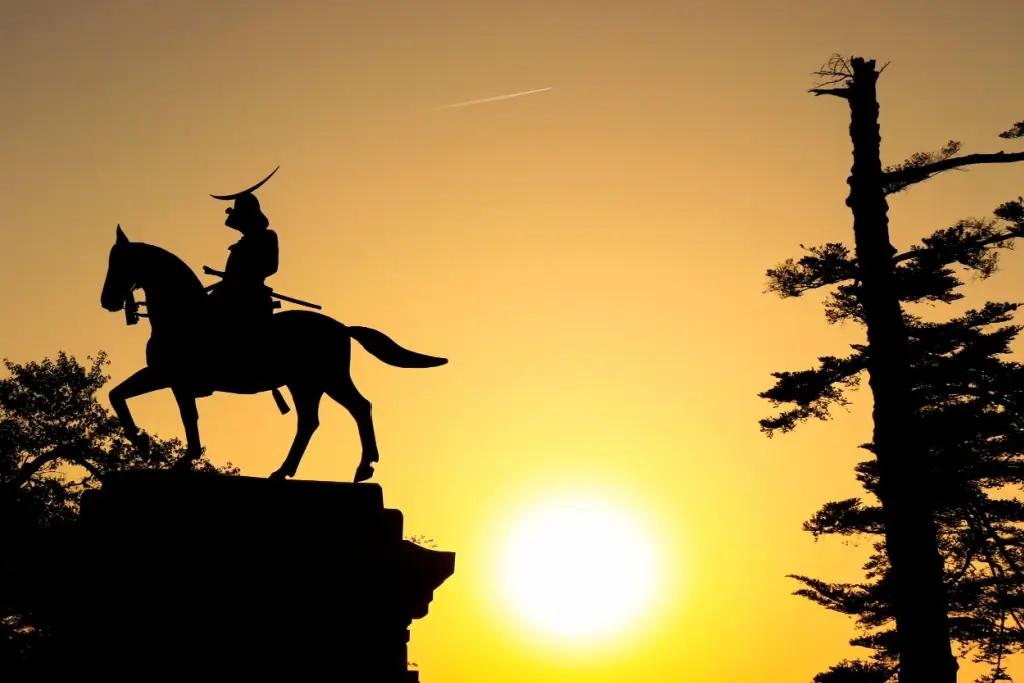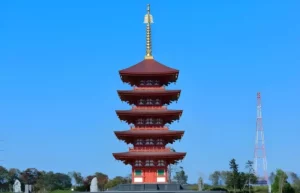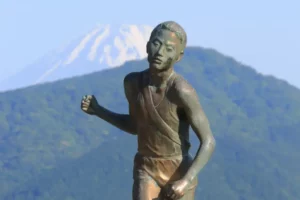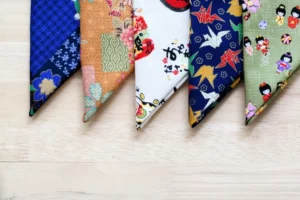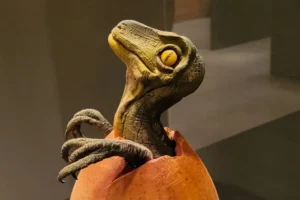Sendai, the vibrant capital of Miyagi Prefecture, is a captivating city that seamlessly blends modernity with a rich cultural heritage. Just a 90-minute bullet train ride from Tokyo, “The City of Trees” is a convenient gateway to the Tohoku region, ideal for travelers seeking a taste of Japan’s rich cultural tapestry.
Table of Contents
ToggleSendai Castle Ruins
Sendai Castle, also known as Aoba Castle, was a famous and formidable fortress built in 1600 by the powerful feudal lord Date Masamune. It was strategically located on top of Mount Aoba, 130 meters above the city, with cliffs on the east and south sides providing natural defenses. Although the main castle buildings are gone, remnants of the outer stone walls and a guard tower remain on the site.
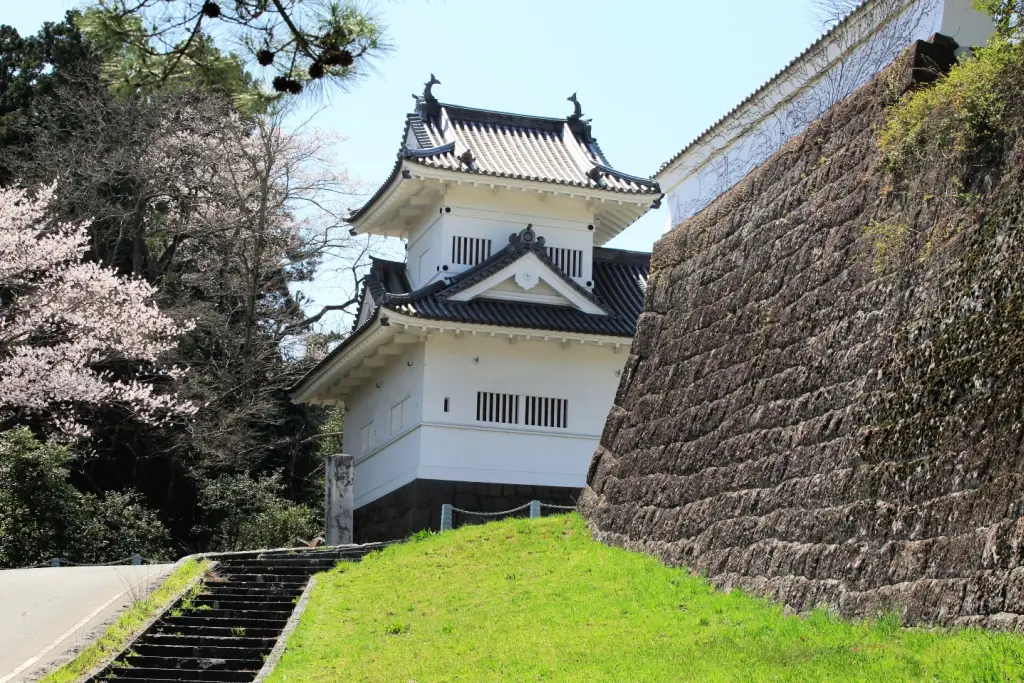
At this museum, you can see computer-generated reconstructions of the castle’s appearance during its heyday. The museum also displays artifacts from the castle and has a theater showing a short movie about its history. For a more immersive experience, you can even use VR goggles to virtually walk around the castle grounds and visualize the grand structures that once stood there.
In 2003, the Japanese government designated the Sendai Castle Ruins as a National Historic Site, recognizing their cultural significance. Although time erased the castle, its legacy endures through the preserved ruins, the museum exhibits showcasing its history, and the city of Sendai that developed around the former castle grounds.
Zuihoden
Zuihoden is a fantastic place that was built long ago to bury some critical people. It was built in the 1600s for Date Masamune, a powerful lord who ruled the Sendai area. The most essential part of Zuihoden is Date Masamune’s mausoleum, a big black building covered in fancy gold carvings and symbols of his family. The entrance gate, called the Nehanmon Gate, has carvings of mythical creatures like kirin. People believed that kirin showed up when a great ruler was born or died.
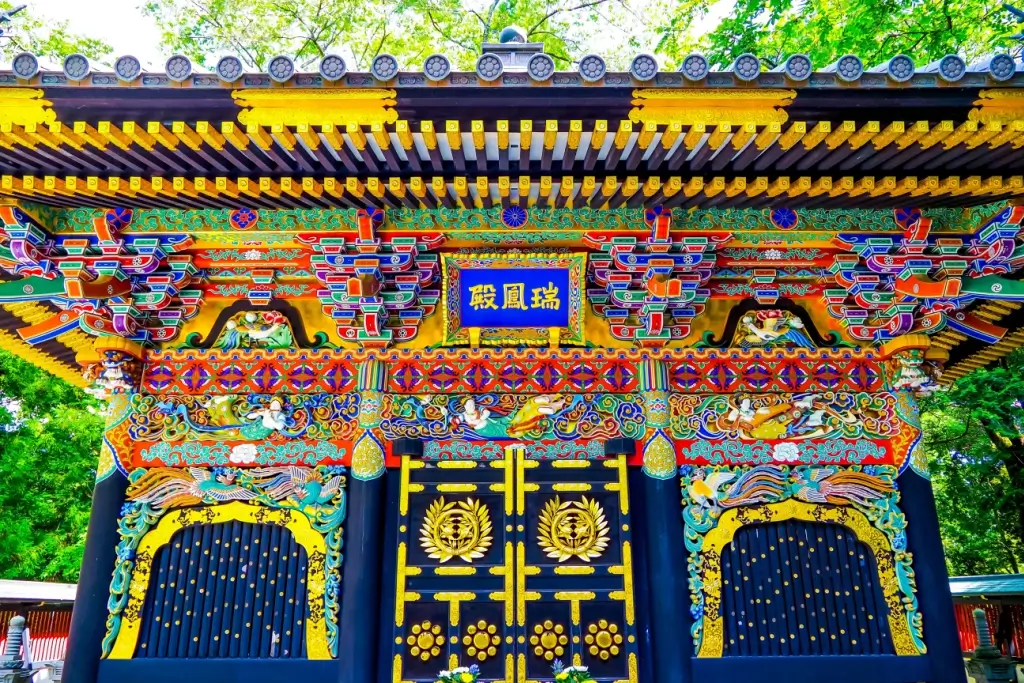
Once you go through the gate, you can see the courtyard and Masamune’s black mausoleum building. Inside is a wooden statue of Masamune himself! On special days, the doors are opened so you can see the statue up close. This shows how much respect people had for Masamune even after he died. Zuihoden also has mausoleums for Masamune’s successors, Tadamune and Tsunamune, who were the successive lords of Sendai after him. Their mausoleums are very fancy, too, and there is a small graveyard for other Sendai lords nearby.
Are you looking for some great snacks while walking through Sendai? Check out Sakuraco! Sakuraco delivers traditional Japanese snacks, teas, sweets, and snacks from local Japanese makers directly to your door so you can enjoy the latest treats from Japan!
Okama Crater
The Okama Crater is a unique natural wonder that looks like a huge cooking pot! It’s located in the Zao Mountain Range in Miyagi and Yamagata Prefectures. This giant crater lake has tall mountain peaks nearby—Kattadake, Kumanodake, and Goshikidake—making it a breathtaking sight.
“Okama” means “cauldron” in Japanese, perfectly describing the crater’s appearance. The lake inside the crater is around one kilometer (0.6 miles) and 325 meters (202 feet) wide. It’s also 27.6 meters (90 feet) deep! The coolest part is that the water in the lake changes color from deep green to brilliant blue depending on how the sunlight hits it.
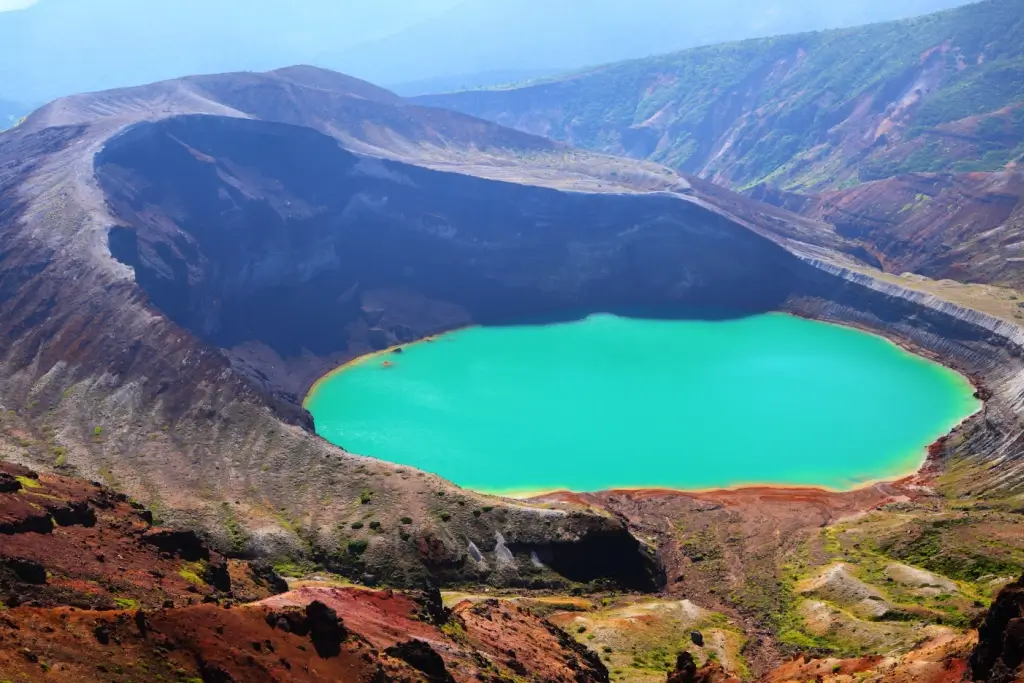
To get to the Okama Crater, you can take the Zao Echo Line, a winding mountain road through the Zao Mountains. Along the way, there’s a rest house called the Zao Summit Rest House, where you can get food and souvenirs while enjoying the fantastic view of the crater. Another way to reach the crater is by hiking a 10-minute trail from Mount Kattadake, which is 1758 meters high. At the top, there’s a shrine called Kattamine Shrine that worships the spirit of Zao.
Sendai Kaleidoscope Art Museum
The Sendai Kaleidoscope Museum is a great place to celebrate kaleidoscopes! It’s located in a beautiful area called Akiu Onsen, and it’s the first museum of its kind in the world. You get to experience kaleidoscopes up close and in enjoyable ways when you go there. As soon as you enter the museum, you’ll see a huge collection of kaleidoscopes in all different shapes, sizes, and designs. The rooms have a nice layout and showcase a vast collection of kaleidoscopes worldwide. Each is like a work of art with colorful patterns and symmetrical designs.
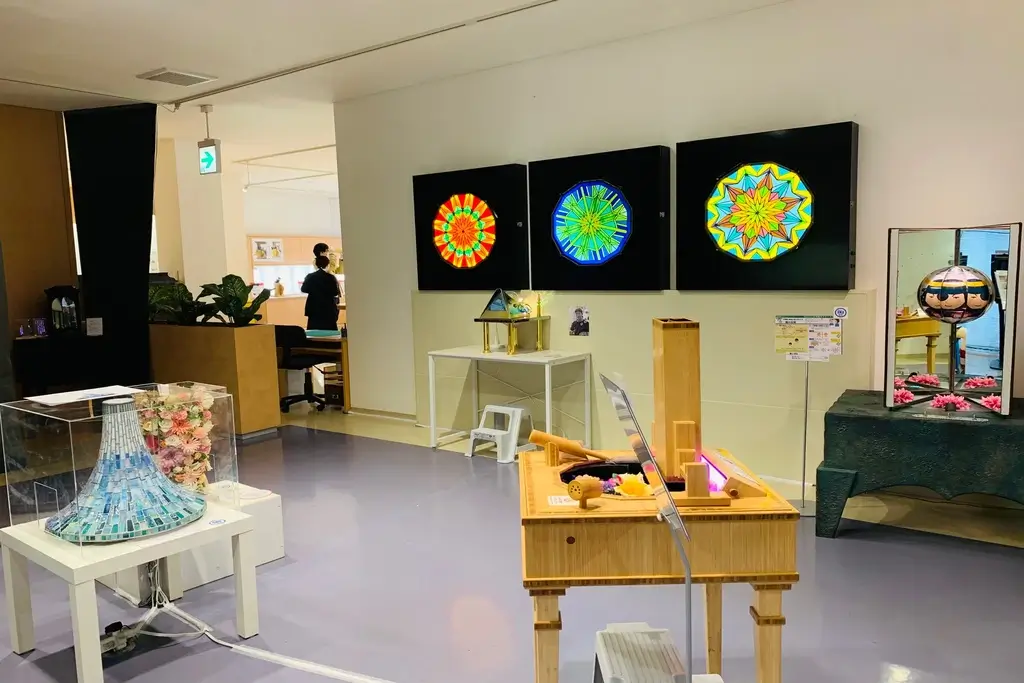
One of the best parts is that you get to make your kaleidoscope! In the “Cute and Quick Kaleidoscope Making Experience,” you can pick your favorite beads and patterns and put them into a tube. Then, you get to take home your unique kaleidoscope as a souvenir!
The museum also has displays of pottery made by a famous female artist named Tsuji Teruko. Her beautiful pottery pieces are shown alongside the kaleidoscopes, making the whole experience more artistic and unique. You can see how detailed and well-made her pottery is, which will make you appreciate the art of kaleidoscopes even more.
After seeing all the exhibits, you can visit the museum shop and experience the corner. There, you can buy kaleidoscopes, souvenirs, and other cool stuff related to the museum. Since the museum is in the Akiu Onsen area, you can also explore the nearby hot spring resort town. This is a perfect place for a day trip or a relaxing vacation.
Rinnoji Shrine
Rinnoji Temple is a unique Buddhist temple in the beautiful town of Nikko. It has been a special spiritual place for over 1,200 years! The temple was founded in the 8th century by a famous monk named Shodo Shonin. It’s an essential part of Japan’s religious and cultural history.
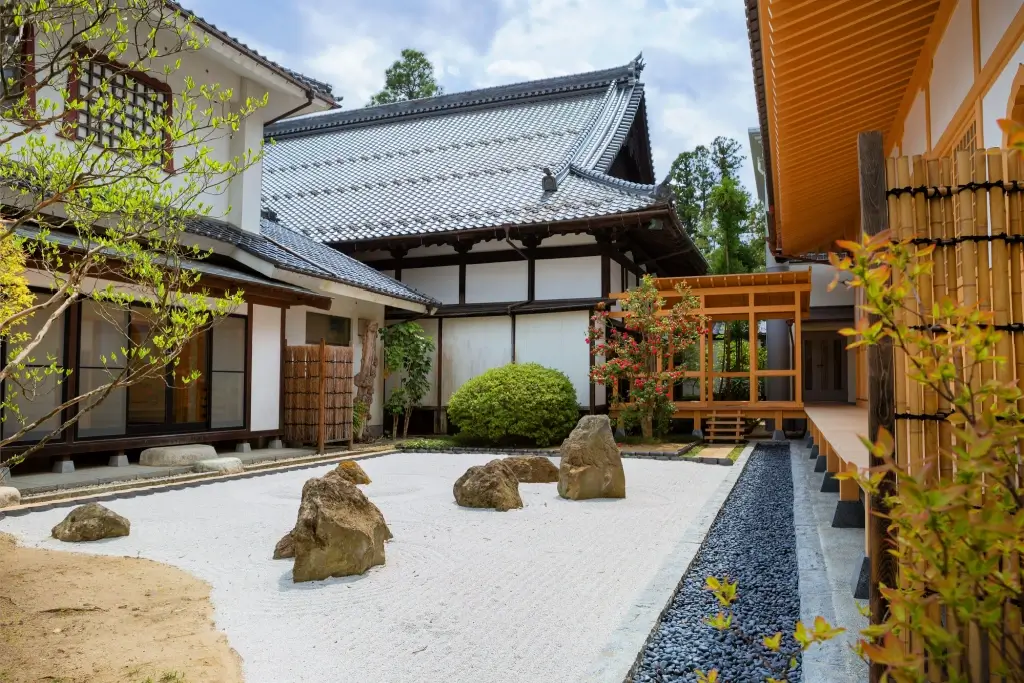
When you first arrive at the temple, you’ll see the massive Sanbutsudo Hall. It’s one of the most significant wooden buildings in Nikko! This grand hall has three massive golden statues eight meters (26 feet) tall. One statue represents Mount Nantai, another is for Mount Nyoho, and the third is for Mount Taro – the three sacred mountains that overlook Nikko. Behind the Sanbutsudo Hall is a treasure house with precious Buddhist artifacts and sacred texts called sutras. You can see these ancient relics’ beauty and learn about their special meaning.
One of the best parts of Rinnoji Temple is the Shoyoen Garden. It’s a traditional Japanese garden that feels so peaceful and calm. There’s a pretty pond surrounded by carefully trimmed trees and bushes, creating a perfect place to sit and think or just relax. In the fall, the garden looks stunning with all the colorful leaves. People come from far away to see how beautiful it is during that time of year.
Why should I visit Sendai?
Overall, Sendai is a genuinely captivating destination that seamlessly blends modernity with a rich cultural heritage and natural splendor, offering an authentic and unforgettable Japanese experience. Conveniently accessible from Tokyo and boasting a relaxed, laid-back atmosphere amidst its urban amenities, Sendai promises a truly enriching and memorable journey away from the tourist crowds. Have you ever been to Sendai before? Let us know in the comments below.


